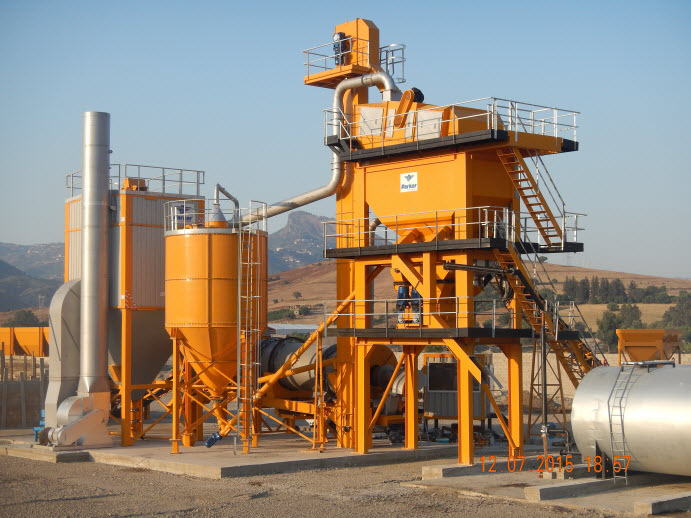Introduction to Asphalt Plant Safety
Asphalt plants are critical facilities in the construction sector, blending aggregates and bitumen to produce asphalt for road construction and maintenance. The combination of high temperatures, flammable materials, and complex machinery requires stringent safety measures to protect workers and ensure operational efficiency. Safety in asphalt plants is paramount because accidents can cause severe injuries and even fatalities. Moreover, maintaining a strong safety record enhances company reputation, boosts worker morale, and ensures compliance with regulatory standards. Implementing robust safety protocols and procedures is not just about compliance; it's about creating a safe working environment that can respond effectively to any potential hazards.
Personal Protective Equipment (PPE)
Personal Protective Equipment (PPE) is crucial in safeguarding employees from the inherent risks present in asphalt production. Workers should wear heat-resistant gloves to handle hot materials and machinery safely. Long-sleeve shirts and full-length pants prevent burns from hot asphalt. High-visibility vests ensure workers are easily seen, reducing the risk of accidents around active machinery. Steel-toed boots protect feet from heavy objects, while hard hats guard against head injuries. Eye protection and face shields are essential to shield eyes from harmful emissions and splashes. It's vital that all PPE fits properly and is maintained in good condition to ensure maximum protection.
Asphalt Plant Fire Safety Protocols
Asphalt plants must have comprehensive fire safety protocols due to the flammable nature of the materials handled. Establishing clear guidelines for handling hot materials and flammable substances is critical. Regular training on fire safety is essential, including drills and the use of fire extinguishers. Fire suppression systems should be installed and maintained throughout the facility, including near storage tanks and in production areas. Clear signage and easy access to fire extinguishers and emergency exits are crucial. Routine inspections and maintenance of electrical systems and heat-generating equipment can prevent overheating and electrical fires. Ensuring that all workers are aware of the nearest fire emergency tools and exits is part of routine safety training.

Asphalt Plant Chemical Safety
Handling hazardous chemicals safely is a critical component of asphalt plant safety. Workers should be trained on the proper handling techniques for chemicals used in asphalt production. Material Safety Data Sheets (MSDS) for each chemical must be accessible to educate workers on hazards and emergency procedures. Proper storage conditions for chemicals must be adhered to, avoiding any potential for spills or leaks. Personal protective equipment must be used when handling chemicals to prevent skin and respiratory issues. Regular audits and inspections ensure that chemical handling protocols are followed. Spill containment measures should be in place to manage any accidental releases quickly. Communication about chemical hazards is key, including labeling and signage to warn about specific dangers.
Asphalt Batching Plant Mechanical Safety
Mechanical safety in asphalt plants involves ensuring that all machinery is operated safely and maintained regularly. Operators should be fully trained on the machines they are running and aware of all safety features. Regular maintenance checks prevent mechanical failures that could lead to accidents. Lockout/tagout procedures must be strictly followed during maintenance to ensure machines are not accidentally started. Safety guards should be in place to prevent contact with moving parts. Monitoring for signs of wear and tear is crucial and should be addressed immediately to prevent further risks. Establishing clear protocols for reporting and responding to mechanical issues helps maintain a safe working environment.
Conclusion
Safety at asphalt plants is an ongoing process that requires diligence, proper training, and adherence to established protocols. By focusing on areas such as PPE, fire safety, chemical handling, and mechanical safety, plants can create a safer environment for all employees. As the industry evolves, so too should the safety measures at asphalt plants, ensuring they remain effective against new challenges.
Read More Articles About Asphalt Plants
- Asphalt Batching Plant Essential Components
- Innovations in Asphalt Batching Plant Technology: Enhancing Efficiency, Reliability, and Sustainability
- How to Install a Modular Asphalt Plant?



